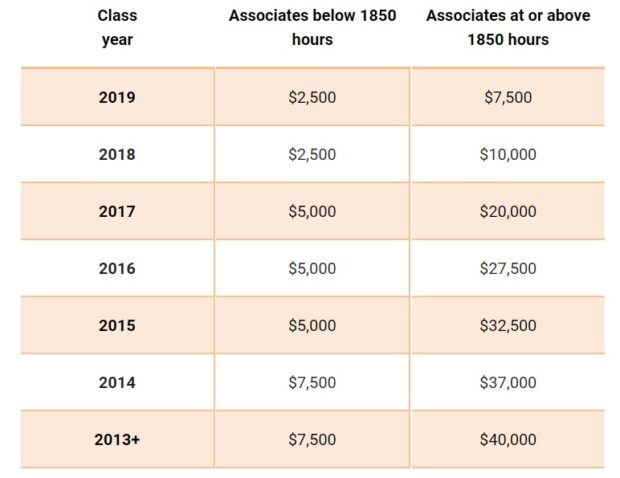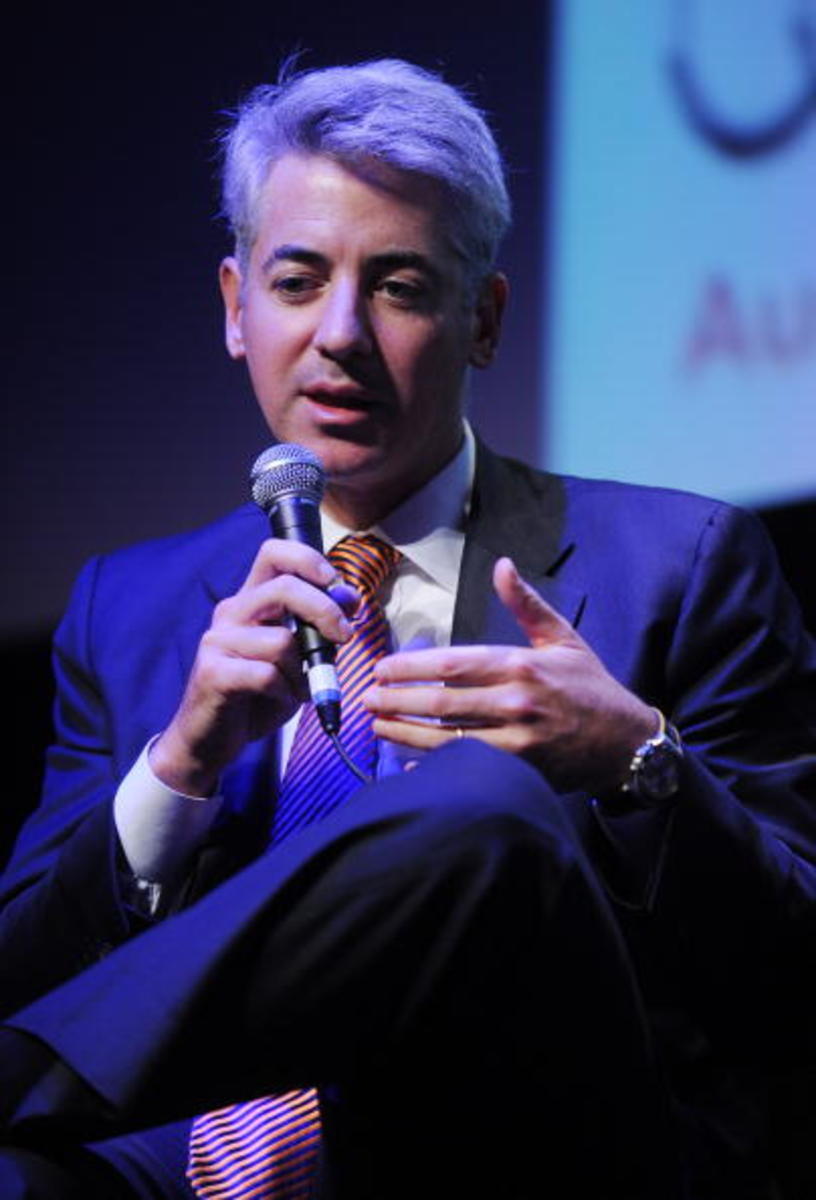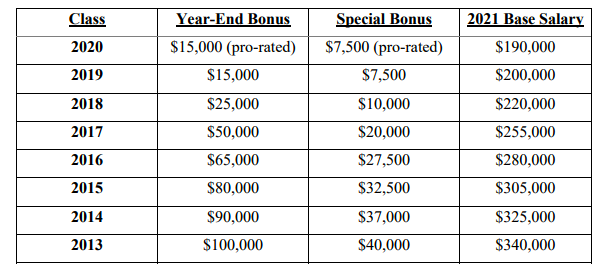(Image via Getty)
Attention Biglaw associates: You’ll be pleased to know that if your firm originally shied away from handing out special bonuses earlier this fall, you’ll soon find some extra cash in your accounts on top of your year-end bonuses, and you’ve got Cravath to thank.
Earlier this fall, when elite firms were falling over themselves to match the Davis Polk special bonus scale, others were in no rush, instead simply committing to make sure that associates would be properly compensated in the future. That’s what Goodwin Procter did back in early October. Lo and behold, today, the morning after Cravath announced that it would fall in line to match those generous pandemic bonuses, Goodwin has announced that it will be handing out special bonuses on the DPW scale.
But, there’s a catch. While the DPW special bonuses merely required associates to be in “good standing,” Goodwin’s special bonuses are hours-based by class year.
Here’s the firm’s scale for these special bonuses:

To get to the 1850 hours threshold, Goodwin will take the higher of (a) associates’ fiscal year 2020 hours (including billable hours, pro bono hours, legal services on behalf of the firm, and shadow training) or (b) associates’ annualized hours for the period May through October 2020. By doing it this way, the firm will be able to recognize more associates, even if their hours tanked because of the coronavirus crisis.
Sources tell us that special bonuses are also being paid to all other non-partner lawyers at the firm, including counsel, senior attorneys, department and discovery attorneys, science advisors, and science law clerks, which is a change from what other firms have been doing for their attorneys (i.e., not much at all).
Goodwin will pay out its regular year-end bonuses in January, which the firm already promised would be “competitive.” Since Cravath has already announced its bonus scale — a Baker McKenzie match — associates can likely expect to receive their own match in just a few months. Congrats to everyone at Goodwin!
(Flip to the next page to see the full memo from Goodwin.)
Remember everyone, we depend on your tips to stay on top of important bonus updates, so when your firm matches, please text us (646-820-8477) or email us (subject line: “[Firm Name] Matches”). Please include the memo if available. You can take a photo of the memo and send it via text or email if you don’t want to forward the original PDF or Word file.
And if you’d like to sign up for ATL’s Bonus Alerts (which is the alert list we also use for salary announcements), please scroll down and enter your email address in the box below this post. If you previously signed up for the bonus alerts, you don’t need to do anything. You’ll receive an email notification within minutes of each bonus announcement that we publish. Thanks for all of your help!
 Staci Zaretsky is a senior editor at Above the Law, where she’s worked since 2011. She’d love to hear from you, so please feel free to email her with any tips, questions, comments, or critiques. You can follow her on Twitter or connect with her on LinkedIn.
Staci Zaretsky is a senior editor at Above the Law, where she’s worked since 2011. She’d love to hear from you, so please feel free to email her with any tips, questions, comments, or critiques. You can follow her on Twitter or connect with her on LinkedIn.







 Jordan Rothman is a partner of
Jordan Rothman is a partner of 







 Kathryn Rubino is a Senior Editor at Above the Law, and host of
Kathryn Rubino is a Senior Editor at Above the Law, and host of 
 Olga V. Mack is the CEO of
Olga V. Mack is the CEO of